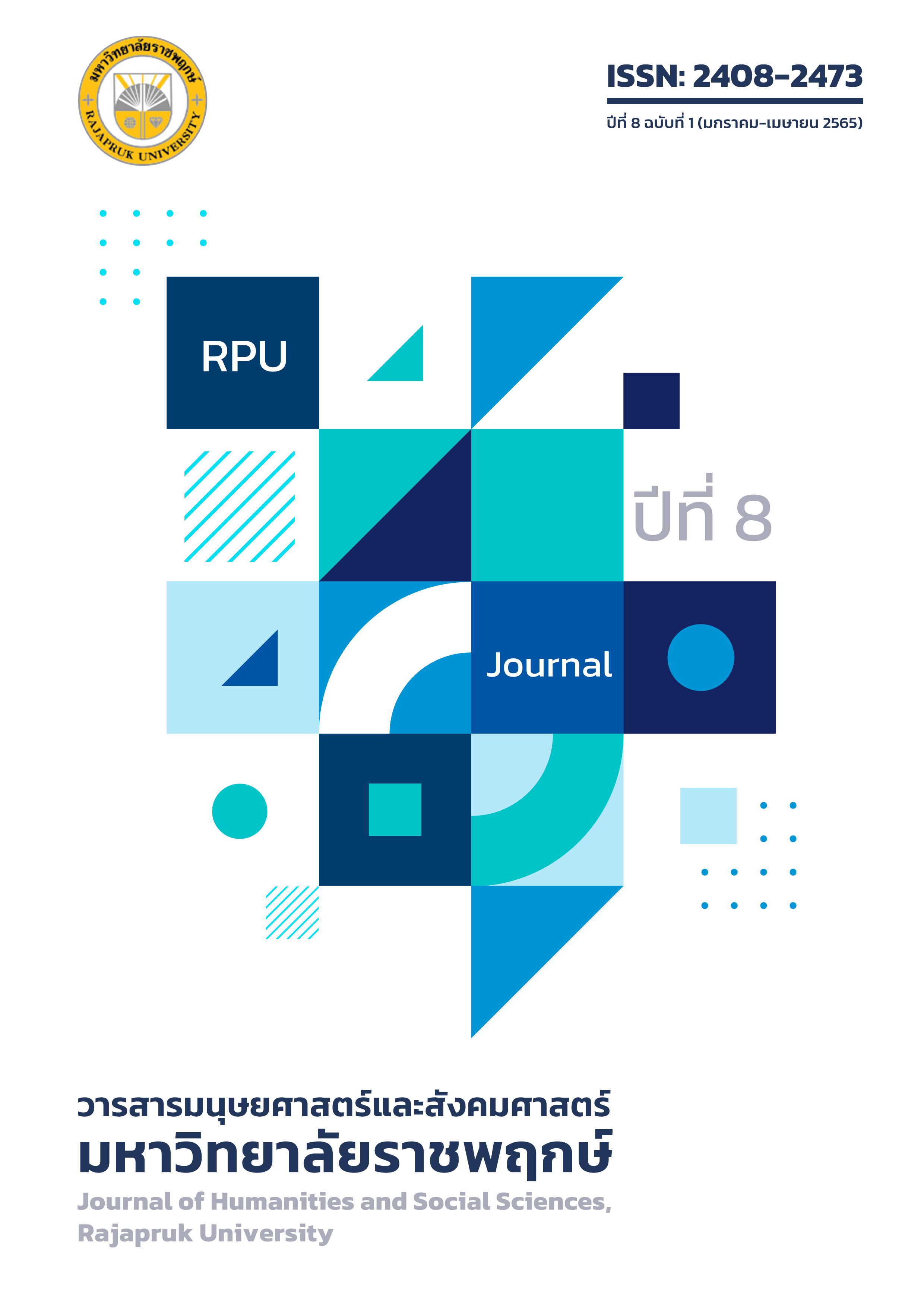Entrepreneurial Competency of Agro-Industrial Entrepreneurs in Thailand
Main Article Content
Abstract
The objective of this research was to identify the entrepreneurial competency factors of Agro-Industrial in Thailand. The sample of this research was the SMEs entrepreneurs of Agro-Industrial in the Bangkok Metropolitan area. There were 10 in-depth interview experts and 400 samples, who were the SMEs entrepreneurs of Agro-Industrial in the Bangkok Metropolitan area. The research instruments were semi-structured interview questions and questionnaires. Data were analyzed by using means and standard deviation, and exploratory factor analysis. Results indicated that entrepreneurial competency of Agro-Industrial in Thailand was 1) Knowledge consisted of 7 aspects, 2) Skill consisted of 4 aspects, and 3) Entrepreneurial attitude consisted of 5 aspects.
Article Details
References
Abdullah, Persna, Noorshella, & Raihani (2016). Entrepreneurial competencies and micro- enterprise performance: A study among informal micro-enterprises in Malaysia. Journal of Social sciences, 5(3): 5-11.
Botha, Melodi & Vuuren, J. & Kunene, T. (2015). An integrated entrepreneurial performance model focusing on the importance and proficiency of competencies for start-up and established SMEs. South African Journal of Business Management, 46: 55-66.
Frederick, Kuratko, D.F. and Hodgetts, R.M. (2007). Entrepreneurship: A Contemporary Approach. Orlando: Harcourt Brace College Publishers.
Hair, J. F., Black, W. C., Babin, B. J. & Anderson, R. E. (2010). Multivariate Data Analysis. 7th ed. Upper Saddle River, NJ: Prentice Hall.
Kaiser, H. F., & Rice, J. (1974). Little Jiffy, Mark IV. Educational and Psychological Measurement, 34: 111-117.
Lans, T., Blok, V., & Wesselink, R. (2014). Learning apart and together: towards an integrated competence framework for sustainable entrepreneurship in higher education. Journal of Cleaner Production, 62: 37-47.
Man, T. W. Y., Lau, T., & Snape, E. (2008). Entrepreneurial competencies and the performance of small and medium enterprises: An investigation through a framework of competitiveness. Journal of Small Business& Entrepreneurship, 21(3): 257-276.
Mitchelmore, S. & Rowley, J. (2013). Entrepreneurial competencies of women entrepreneurs pursuing business growth. Journal of Small Business and Enterprise Development, 20(1): 125-142.
McClelland, David.C. (1973). Testing for competence rather than for “intelligence”. American Psychologist.
Pepple, G. J. & Enuoh, R. O. (2020). Entrepreneurial Competencies: A Required Skill for Business Performance. European Journal of Business and Innovation Research, 8(3): 50–61.
Phelan, C. & Sharpley, R. (2012). Exploring entrepreneurial skills and competencies in farm tourism, Local Economy: The Journal of the Local Economy Policy Unit, 27(2): 103-118.
Photchanachan, S., Uppapong, K., Atchavanan, C., Mangkang, K., & Kanwivat, S. (2020). The Characteristics of Social Entrepreneurs in Thailand. Journal of Humanities and Social Sciences, Rajapruk University, 6(3: 31-43. Retrieved on April 15, 2020, from https: //so03.tci-thaijo.org/index.php/rpu/article/view/248917
Strauss, A., & Corbin, J. (1998). Basics of qualitative research: Techniques and procedures for developing grounded theory. 2nd ed. Sage Publications, Inc.
Teece, D.J. (2012). Dynamic capabilities: Routines versus entrepreneurial action, Journal of Management Studies, 49(8): 1395-1401.


